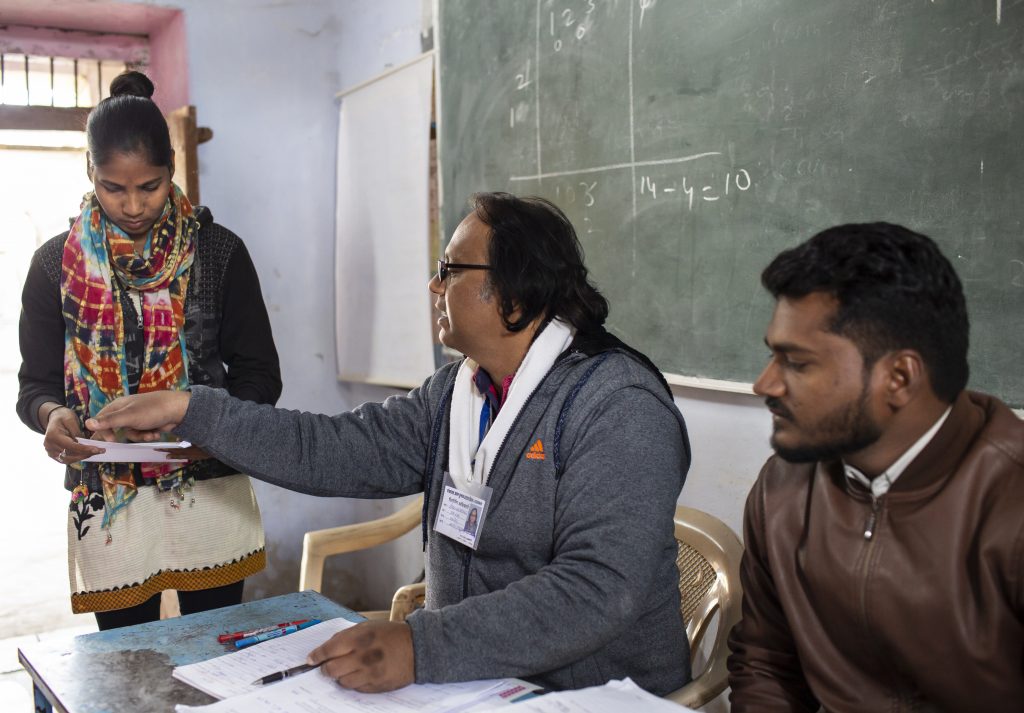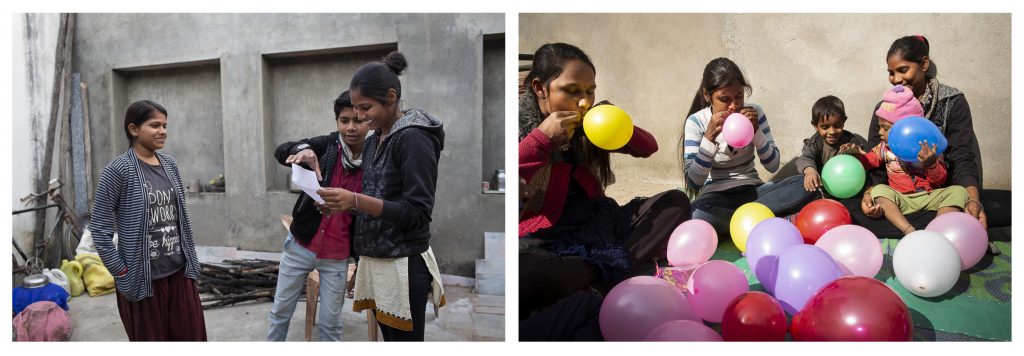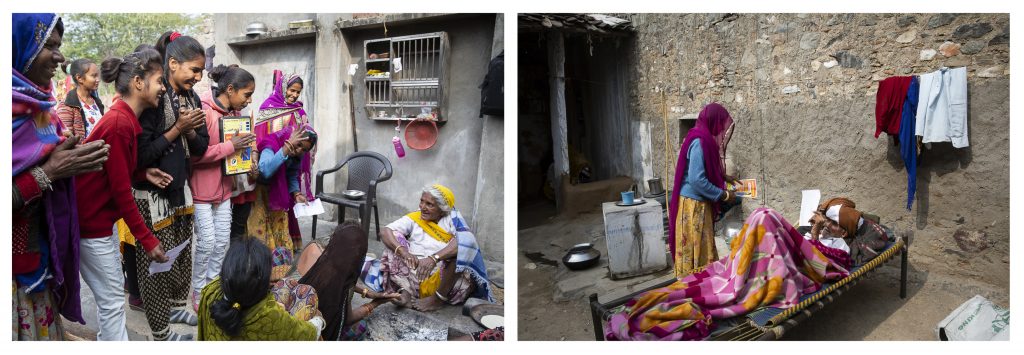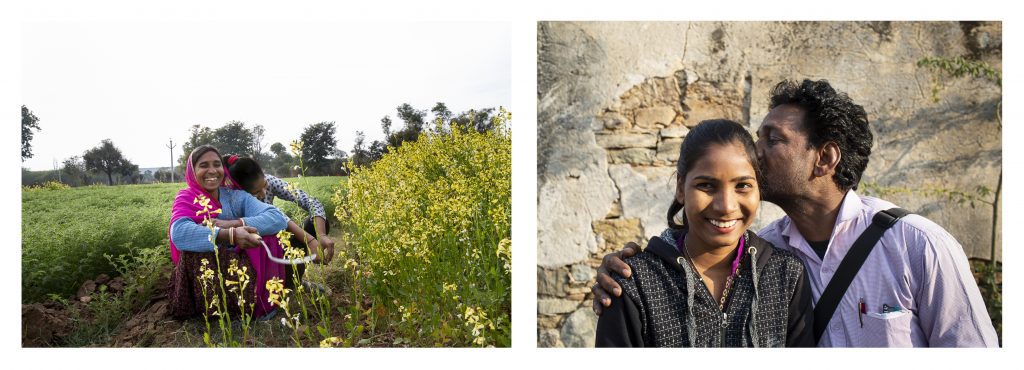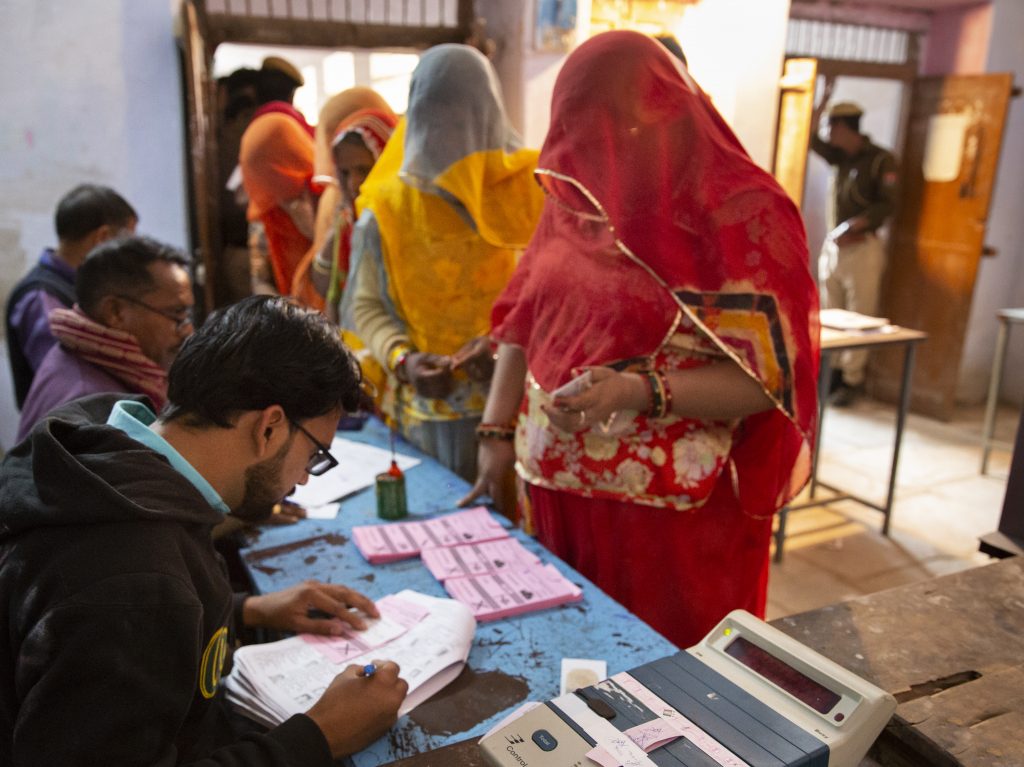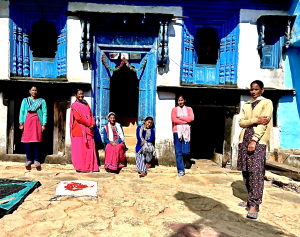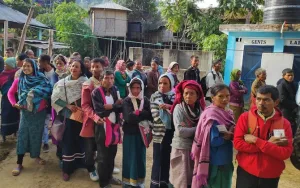For Laxmi Bhil (23), the Bhil Adivasi Sarpanch (President), Kabra Village Council, Bhilwara District, Rajasthan, contesting elections was both taxing and rewarding. A nursing student, Laxmi fought hard against the prevailing notions of women’s space in politics and questions about her ability to run for public office as a young woman.
Laxmi was 21 when she ran for the office of Sarpanch in her village. She had political aspirations from an even younger age, especially to serve the most marginalised groups.
A first generation student, she is the first and only person from her village to pursue higher education when she enrolled in BSc Nursing course in Udaipur.
“I was not interested in studying nursing. I wouldn’t say I like injections. I took up the course only because my father persuaded me. It was his dream. I wanted to study humanities. But then I yielded because nursing also allows me to serve society.”
She is currently in her final year and divides her time between completing her education and dispensing her duties as a sarpanch.
Laxmi has other reasons to enter politics. Her Gram Panchayat falls within a predominantly a mining area which has implications on the health of the people. Mining has affected the local crop yield, polluted water sources and destroyed livelihoods in the region, making it very fragile.
As a public representative, Laxmi intends to work on these issues during her time in office. “I need time to learn more and build my skills before I can approach this giant corporation.”
There are other issues she wants to address during her tenure.
“Children of this panchayat have to travel long distances to pursue higher education. As a result, many drop out. For girls, the situation becomes even direr as they are forced into early and child marriage. I want to ensure a complete stop is put to this harmful practice.
“Apart from education, I also want to focus on healthcare and ensure people have access to basic amenities in the panchayat. My community has remained backward even to this day. As the majority of people have never attended school, they find it difficult to acquire decent jobs.”
“I also want to enable women to have access to vocational skills so that they can be self-reliant.I want to bring in a major shift in the way things were done in the past.”

